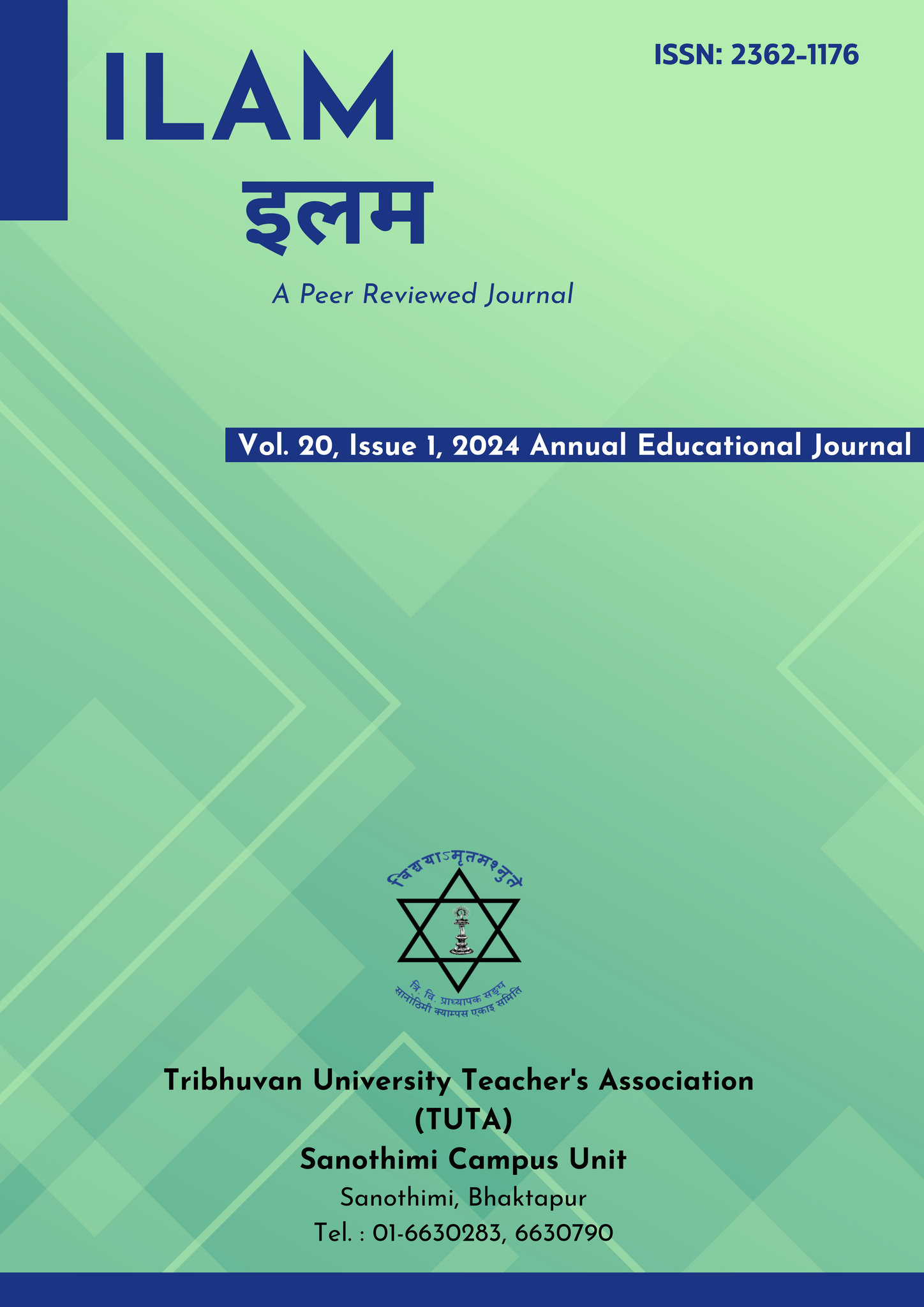Analyzing the Dynamics of Online Instruction and Academic Performance: A Cross-Sectional Study at Tribhuvan University during the COVID-19 Era
DOI:
https://doi.org/10.3126/ilam.v20i1.67315Keywords:
Online Instruction, Academic Achievement, Higher Education, TechnologyAbstract
This study investigates the academic performance of students receiving online instruction at higher education, TU. Data from 400 master's degree holders at Tribhuvan University who were randomly allocated to three campuses in the Kathmandu Valley and registered in online courses during COVID-19 are analyzed by the study using a cross-sectional survey design. A semi-structured questionnaire was developed to assess the relationship between online teaching and academic achievement. Validated through a pilot study, it used self-reported data and a chi-square test for bivariate analysis, with statistical analysis using SPSS 26 and STATA 14. The study shows a complicated relationship—one that is impacted by instructional design, student characteristics, technology, and instructor support—between online learning variables and academic achievement. It emphasizes the importance of a supportive online environment, highlighting the positive association between online instruction and academic performance. However, it also suggests that time spent and content clarification may not significantly impact academic achievement. The consequences of online learning underscore the necessity of an all-encompassing and cooperative strategy from all parties involved to guarantee its success and efficiency in satisfying the changing requirements of students in the digital era.




